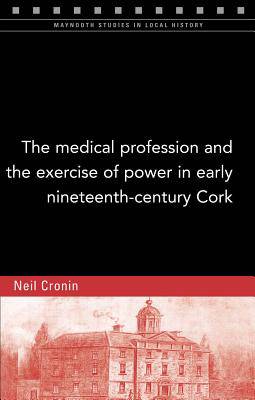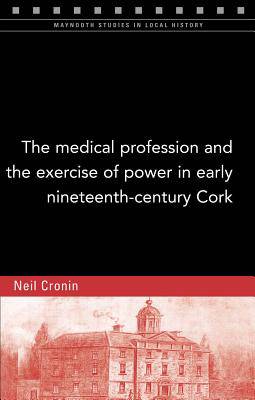
Door een staking bij bpost kan je online bestelling op dit moment iets langer onderweg zijn dan voorzien. Dringend iets nodig? Onze winkels ontvangen jou met open armen!
- Afhalen na 1 uur in een winkel met voorraad
- Gratis thuislevering in België vanaf € 30
- Ruim aanbod met 7 miljoen producten
Door een staking bij bpost kan je online bestelling op dit moment iets langer onderweg zijn dan voorzien. Dringend iets nodig? Onze winkels ontvangen jou met open armen!
- Afhalen na 1 uur in een winkel met voorraad
- Gratis thuislevering in België vanaf € 30
- Ruim aanbod met 7 miljoen producten
Zoeken
The Medical Profession and the Exercise of Power in Early Nineteenth-Century Cork
Volume 115
Neil Cronin
€ 13,95
+ 27 punten
Omschrijving
In Ireland, in 1820, the surgical management of children with bladder stones in the South Infirmary was criticized by a prominent Cork surgeon, giving rise to a furious and bitter dispute. This book considers the acrimonious episode by examining the backgrounds of the protagonists, the economic and other tensions active in the medical profession of the time, and, in particular, the dynamics of how power was exercised in provincial Cork of the early 19th century. After the turbulent 1790s and the brutal suppression of the rebellion, the Act of Union and the failure to grant Catholic Emancipation ensured that rancor and upheaval continued into the new century. Cork as elsewhere was riven by sectarian and political conflict. Despite an economically resurgent Catholic mercantile class, a dominant elite, small in number, centered on the corporation, had a monopoly of local power, prestige, and patronage. These partisan divisions were also reflected in the medical profession. Often, the fault-lines exposed by such quarrels provide insights into a society that may not otherwise apparent. (Series: Maynooth Studies in Local History -- Vol. 115)
Specificaties
Betrokkenen
- Auteur(s):
- Uitgeverij:
Inhoud
- Aantal bladzijden:
- 72
- Taal:
- Engels
- Reeks:
- Reeksnummer:
- nr. 115
Eigenschappen
- Productcode (EAN):
- 9781846825170
- Verschijningsdatum:
- 12/09/2014
- Uitvoering:
- Paperback
- Formaat:
- Trade paperback (VS)
- Afmetingen:
- 140 mm x 216 mm
- Gewicht:
- 104 g

Alleen bij Standaard Boekhandel
+ 27 punten op je klantenkaart van Standaard Boekhandel
Beoordelingen
We publiceren alleen reviews die voldoen aan de voorwaarden voor reviews. Bekijk onze voorwaarden voor reviews.











